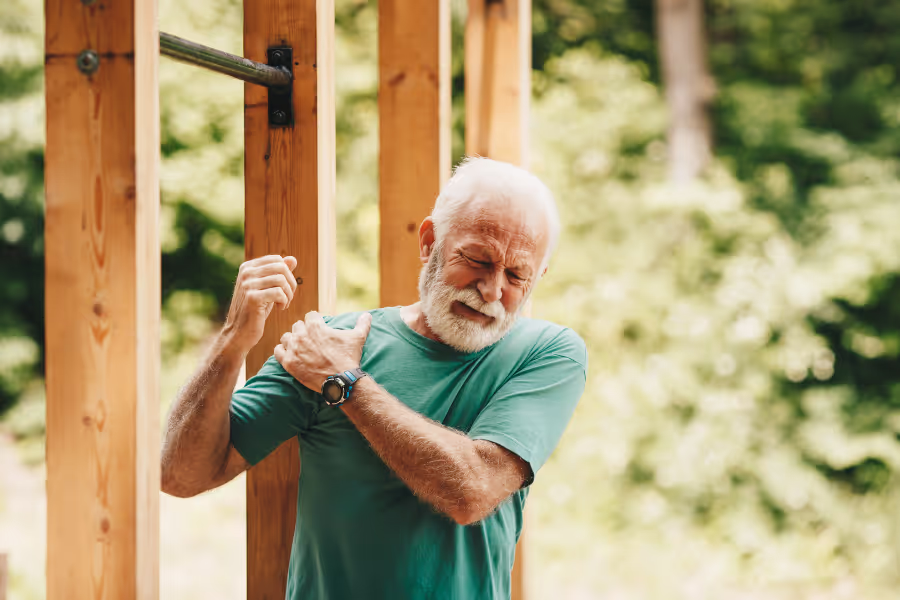
Informational purposes only, not medical or legal advice. Please consult your doctor or surgeon.
Shoulder arthroscopy is a minimally invasive surgery where a doctor fixes problems inside your shoulder using a tiny camera and slim tools through a few small cuts.
Think of it like sending a mini camera into a squeaky, jammed door hinge to see what’s wrong and tune it up.
Why it’s done
Consults and surgery dates are typically scheduled in weeks—not months—which means faster relief and return to work, sport, and caregiving duties.
Ability to choose a surgeon based on what's important to you (i.e. specific expertise, experience, qualifications, personal connection).
Private pathways typically provide a clear quote and surgery date/timeline, so you can arrange time off, caregiver help, and rehab. This certainty can ease anxiety and help families plan for recovery.
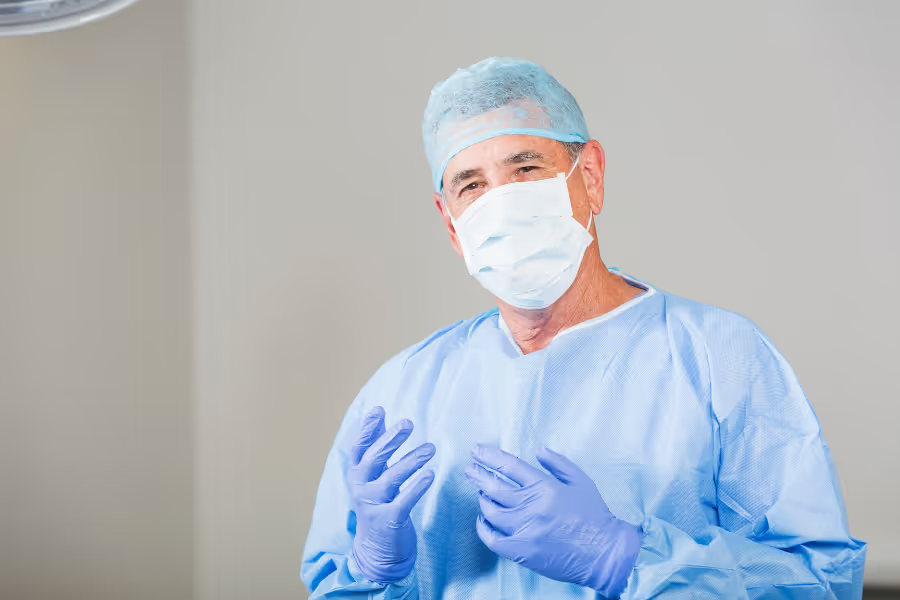
Shoulder arthroscopy takes 45 to 120 minutes, depending on the extent of the underlying problem.
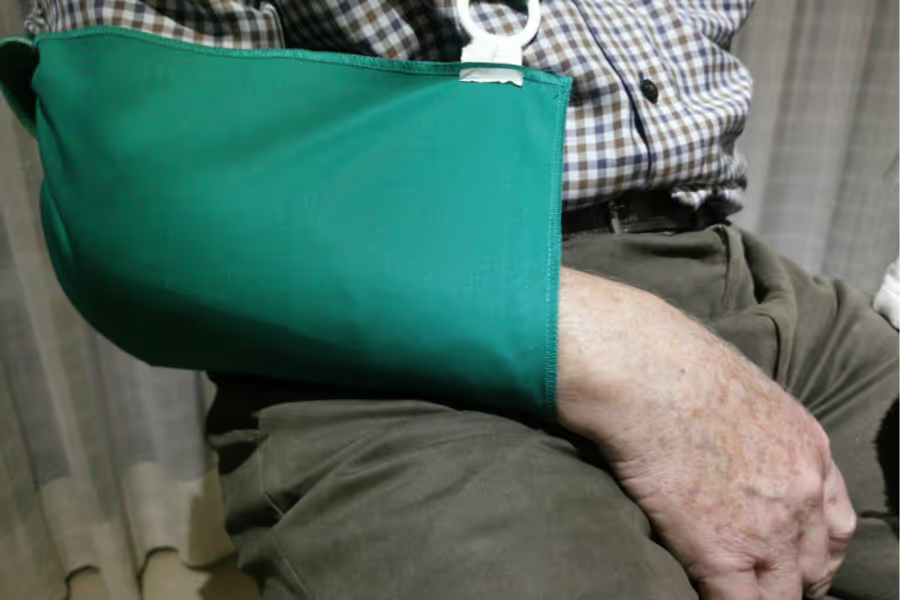
The recovery process varies patient to patient. Your recovery might look quite different, so please seek further guidance from your surgeon. In general here is what you can expect:
Week 1:
Weeks 2-4:
Weeks 5-12:
Weeks 13-52:
Shoulder arthroscopy is a minimally invasive surgery, however the costs are significant and very because of the potential complexity involved in certain instances. Private clinics in Canada typically charge $5,000 to $16,000.
In the United States, the costs vary even more: CA$9,660 to CA$43,670.
Costs vary so much because of location, surgeon experience, facility type, scopy of potential treatments, complexity of the issue, and included services (some clinics offer all-inclusive, while others charge separately for anesthesia, followup care, etc.).
Most quotes for private shoulder arthroscopy cover:
What’s usually not included:
Choosing your surgeon is one of the benefits of going the private route. Here’s what to consider and the key questions to bring to your shoulder arthroscopy consultation.
Shoulder arthroscopy may be advisable if you're experiencing persistent shoulder pain and instability that has not responded to more conservative measures.
If you're experiencing persistent pain; struggle to lift your arm overhead or rotate your arm; feel clicking, popping, grinding when moving your shoulder; feel the joint suddenly give way during normal activities; or struggle to sleep, especially lying on the side of the impacted shoulder, then you may be a candidate for shoulder arthroscopy.
The specific issues shoulder arthroscopy treats include:
Ultimately, your surgeon will advise you whether shoulder arthroscopy makes sense, given your unique circumstances.
No, you do not need a referral for private shoulder arthroscopy in Canada. You can book a consultation directly with a surgeon, and they will review your condition, symptoms, and any previous treatments or diagnostics.
Your surgeon will provide you with guidance on how to prepare, but you can expect some pre-surgery exercises to help with stiffness, muscle weakness, and range of motion issues. If you smoke, you will be advised to stop to improve healing outcomes. Depending on your weight, you may be advised to diet and exercise to reduce surgical risks and improve healing outcomes.
Support: Try to arrange for someone to stay with you for the first few days after surgery, and someone close by who can reach you in the event of an emergency for the first several weeks/months after surgery.
Work: shoulder arthroscopy is considered minimally invasive, the recovery can be major depending on the underlying issue treated. If possible, you will likely need to request time off work to recover, especially if your job involves manual lifting.
Post-surgery practice: You might consider 'practicing' daily activities with substantially limited range of motion, such as getting in and out of the car, getting in and out of bed, putting on and taking off shoes, etc.
The answer to this question depends heavily on your unique circumstances. Please consult your surgeon for tailored advice.
In general, delaying shoulder arthroscopy by 6-12 months presents several potential risks:
If you need shoulder arthroscopy, and do not get it, then you may risk:
Your individual risk depends on your diagnosis (e.g., rotator cuff, labrum/instability, impingement), tissue quality, health, surgeon experience, and rehab. Discuss specifics with your surgeon.
Common and usually temporary
Less common
Uncommon but important
Procedure-specific considerations
Shoulder arthroscopy treats a range of issues in the shoulder, and some involve more substantial recovery times than others. Your return to normal activity and sport will depend on your unique circumstances.
In general, you can expect basic arm movement within 2-3 months, retuning to low impact sport within 12-14 months, and full recovery within 14 months.
Always consult your surgeon and physio for guidance.

Browse vetted shoulder surgeons across Canada. Compare prices, qualifications, locations.
BROWSE SURGEONS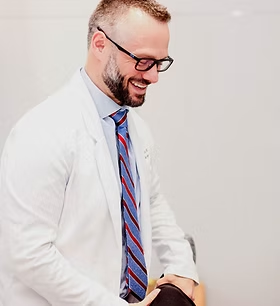

FRCSC-certified orthopedic surgeon with sub-specialty interest in complex knee-related conditions, as well as 14 years of practice experience managing most general orthopedic problems.
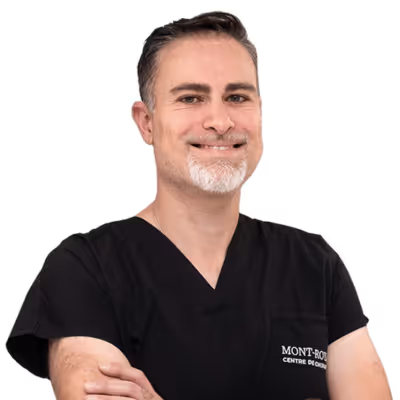

Experienced orthopedic surgeon known for a patient-centred approach and technical versatility, ranging from soft tissue repair (sports medicine) to total joint replacements (knee, shoulder, hip).

Nationally renowned orthopedic surgeon. He serves as the Division Head of Orthopedic Surgery at Women's College Hospital and is Lead Team Physician for major professional sports organizations.